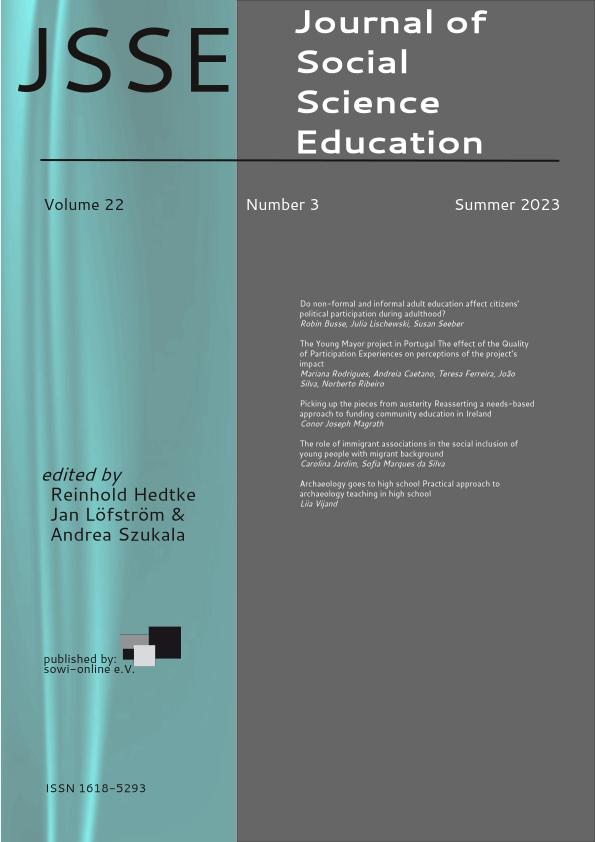Challenges for European teachers when assessing student learning to promote democratic citizenship competences
DOI:
https://doi.org/10.11576/jsse-5978Keywords:
Citizenship education, Formative assessment, Democratic citizenship competence, Teachers, LearningAbstract
Highlights:
- There is a lack of resources and examples of good practice in citizenship education and relevant assessment tools for the teachers to transform and use in their practices.
- The teachers experience a lack of pedagogical approaches to work with designing learning activities to enhance normative changes and values relevant to citizenship education.
- Teachers experience a lack of time to foster student citizenship competence
- When personal opinions are at stake, some teachers find it difficult to give appropriate feedback to non-democratic values and attitudes.
- School systems’ and parents’ expectations of high-stakes summative feedback influence teachers’ hesitation to perform formative assessment in citizenship education.
Purpose: This study investigates the challenges faced by European teachers when assessing student learning of democratic citizenship competences by asking about their experiences and opinions in their teaching practices.
Design/methodology/approach: Through focus group interviews conducted with the teachers, we investigate the underlying reasons for teachers’ choices of using certain forms of assessment methods while excluding other methods. This paper presents the analysis of interviews with 82 schoolteachers from lower secondary schools in eight European countries (average 19 years of teaching experience) participating in an Erasmus + project
Findings: The teachers’ responses uncover a need for teachers to be better equipped with relevant knowledge, tools and approaches to practice formative assessment to develop students’ democratic citizenship competences. The current common understanding of the summative assessment of knowledge using simple and standardised tools poses one of the main challenges for teachers to use formative assessment methods.
Practical implications: The focus on summative assessment significantly limits the teachers’ room to work on democratic citizenship competence. There is a need to strengthen this as a democratic citizenship education as a cross-curricular element in education, with an emphasis on formative assessment, to monitor and support students’ democratic values and attitudes.
Downloads
Published
How to Cite
Issue
Section
License
Copyright (c) 2023 JSSE - Journal of Social Science Education

This work is licensed under a Creative Commons Attribution-ShareAlike 4.0 International License.



